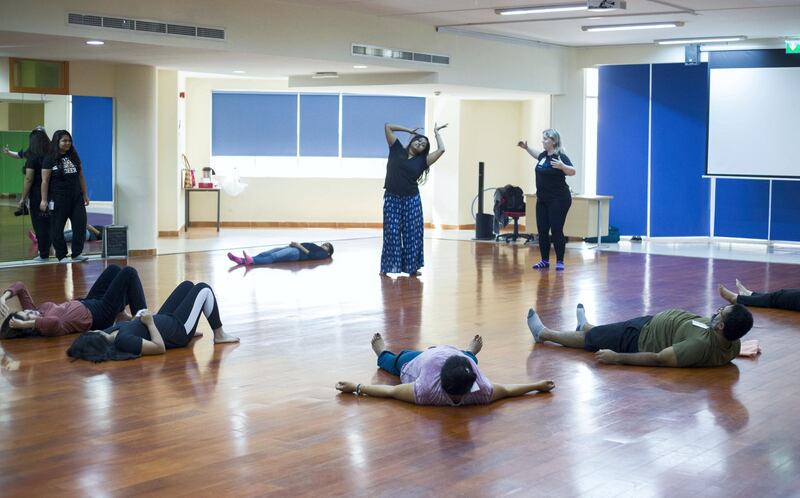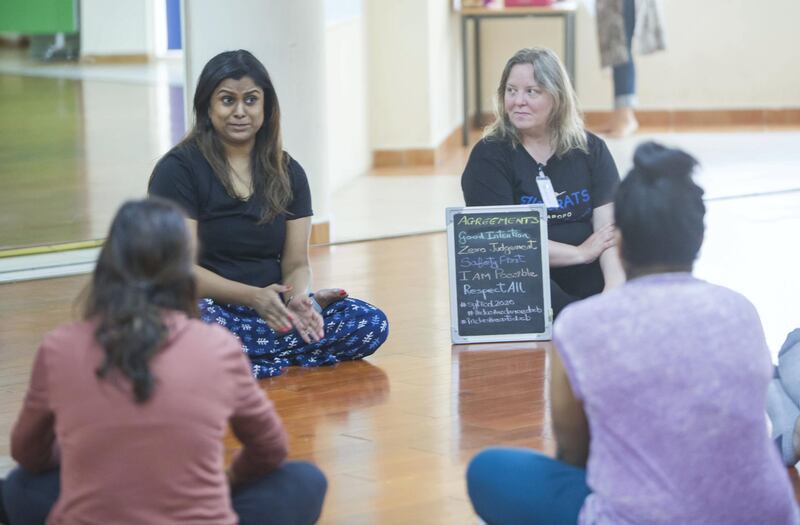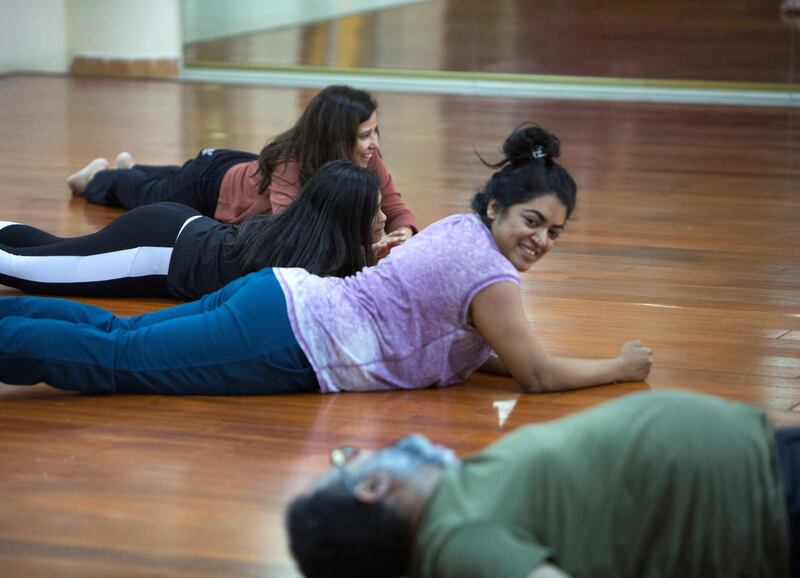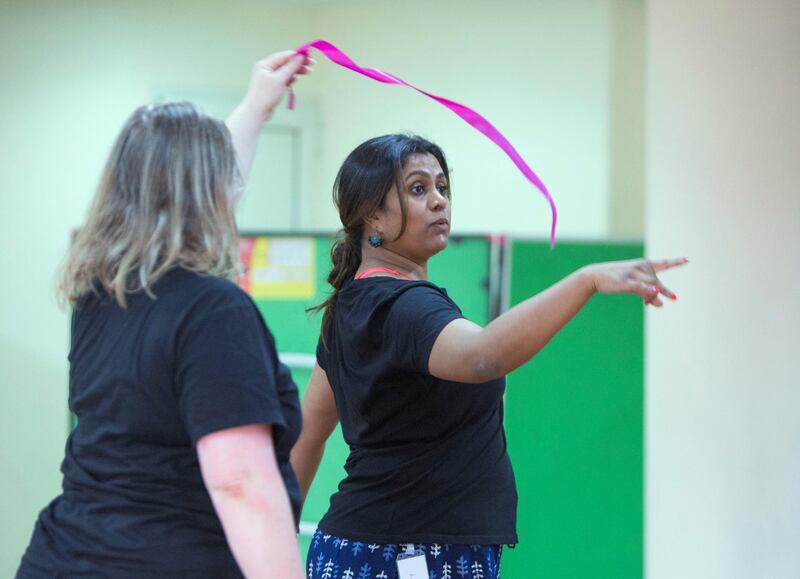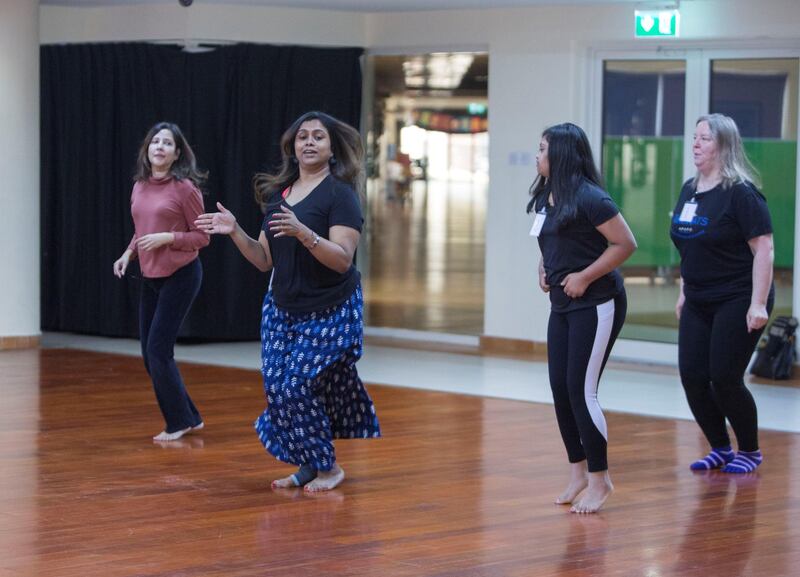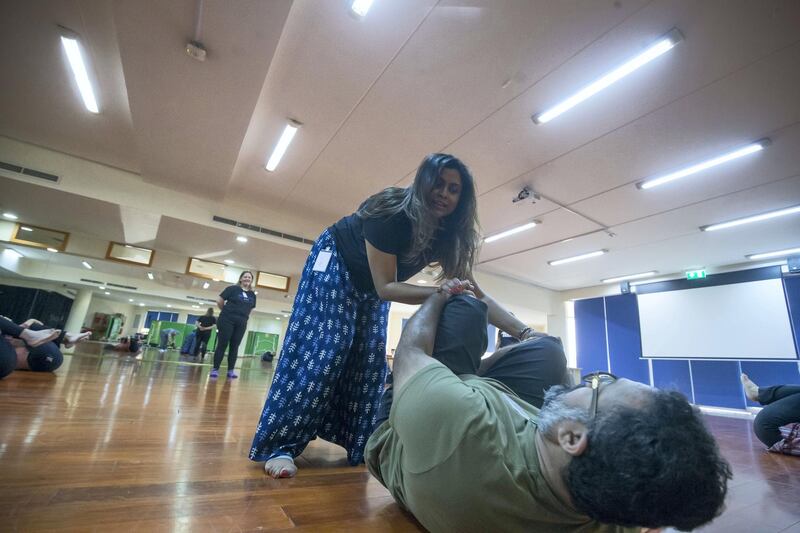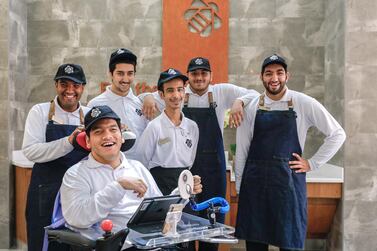All dance classes start with a warm-up and Ancy Alexander's So You Think I Can't Dance workshops are no different. Only here, the routine is rather unique – participants begin by sitting in a circle, where they are encouraged to speak up when their turn comes, telling the rest their names, how they're feeling and if there's anything the group "needs to know about them".
When people are done talking about themselves – descriptions range from mentioning a love of striped socks to admitting they're shy dancers – Alexander holds up a board. On it is a list of "agreements" one has to make to be a part of the class. It includes points such as "good intentions", "zero judgment", "safety first", "respect all" and "I am possible".
"At any point in this session, if something is aching, if something is not feeling right, please feel free to stop," Alexander says. "If you simply want to lie down on the floor, just go ahead. No one here is going to judge you. Today, anything is possible."
Determined to dance
Welcome to Dubai’s first inclusive dance workshop, created especially for people who are differently abled – from those with injuries that have left certain parts of their body stiff to those in wheelchairs. The classes were started last year by Alexander, 34, a trained dancer with partial cerebral palsy, who knows first-hand how dance classes can sometimes exclude people of determination.
“Able-bodied dancers sometimes don’t know what to do when a person of determination comes to their class,” she says. “They either don’t allow the person to take the class altogether, or dumb it down and infantilise the person. And when you get to that point, it loses value completely.
“I got tired with the performance-orientated ecosystem. The point of this class isn’t to attract sympathy or tears – it’s about building a community and a safe space where people can get together and be themselves.”
Flexible dance routines
So what exactly goes into an inclusive dance workshop? As it turns out, the warm-up isn't the only aspect that's different. The two-hour session, which most recently took place at Horizon International School, includes a number of exercises. One encourages participants to showcase their interpretation of an animal's movement, all the while moving to music.
Another asks them to team up and move to the flow of a ribbon that their partner is holding. A third encourages each participant to come up with their own simple move that the class then attempts to copy. Above all, people are encouraged to dance according to how they see fit, and not adhere to a uniform standard.
“I think, physically, it’s such a good thing to express movement,” says Christine Dessa, a participant who is accompanying her daughter, Alina Siddiqi, 15, a gymnast with Down syndrome. “When it comes to most dances, there can be a lot of restrictions. There are things that have to be learnt, and it’s all about discipline and repetition, and what they can finally achieve. But it’s not freestyle.”
Determined people from all walks of life
Alina loves dancing. From hip-hop lessons to after-school classes, she has done it all, but her mother admits she seems particularly comfortable at the So You Think I Can't Dance workshop. "She related to Ancy really quickly," Dessa says. "She was more open than she usually is. And it was great that it was something we could do together. We went in expecting a regular class where you learn a routine, but it was so different; it was more about mindfulness."
With the class including people of varying fitness levels and physical abilities, scheduling a uniform set for all seems impossible. However, Alexander works around this by encouraging people to share what they're feeling, and to be honest about their strengths and weaknesses. She also insists on keeping her classes small, limited to 10, so everyone gets individual attention. That way, she can move through the room, helping participants with their stretches and bends. This also gives her time, she says, to do her "homework".
“I want an understanding of the conditions coming in. For example, I once got a message from someone who was hearing-impaired, who was interested in attending a session. So I communicated with him in advance about the kinds of instructions he would need.”
For Alexander, this planning is an integral part of the workshop. Having trained in traditional Indian dance forms such as bharatanatyam and kathak, she reiterates that good teachers do more than only showing a person the moves – they can also instil a sense of confidence and integrity. And this is an important part of getting people of determination moving and keeping them interested in dance.
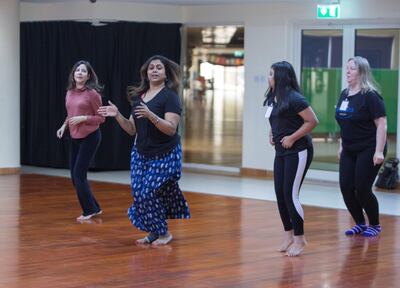
"Vonita Singh, founder of Movement Mantra [dance therapy classes for people with Parkinson's disease], has a phrase about muscle: use it or lose it," says Alexander. "And this is absolutely true, especially for people of determination. For example, my body has been affected by quite a lot of wear and tear, and I have to constantly stay active or my muscles start to stiffen up."
Alexander's cerebral palsy has left her flat-footed, making co-ordination and balance harder than it is for most. This means she had to work twice as hard in dance classes to keep up, and often had cuts and bruises on her feet. Despite this, she is adamant that dance changed her life. "If it weren't for dance, I would have had no interest in my body, I wouldn't have gone for activities like Pilates and yoga. And it honestly helps me connect to my body. When I go a doctor, I'm able to tell him or her exactly what's wrong based on how I felt during a class."
The social aspect
After the session concludes, there is a cool-down period, as with most workouts, where participants again sit in a circle for some simple stretches followed by a chat over tea and biscuits. Volunteer Kathryn Pepper points out that this is another positive aspect of the class, the fact that it's a great way to meet people. "I think it's important to recognise how common 'disabilities' are in society," she says. "It's great to see people letting go and having fun, which is what dance is all about."
So You Think I Can’t Dance workshops take place once a month, with the next session scheduled for Friday, February 28, 10am-12.30pm. To register, email kriyability@gmail.com
